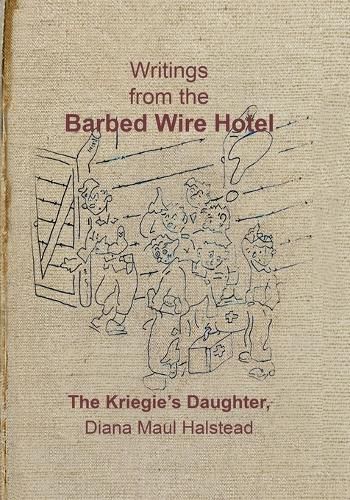Readings Newsletter
Become a Readings Member to make your shopping experience even easier.
Sign in or sign up for free!
You’re not far away from qualifying for FREE standard shipping within Australia
You’ve qualified for FREE standard shipping within Australia
The cart is loading…






This title is printed to order. This book may have been self-published. If so, we cannot guarantee the quality of the content. In the main most books will have gone through the editing process however some may not. We therefore suggest that you be aware of this before ordering this book. If in doubt check either the author or publisher’s details as we are unable to accept any returns unless they are faulty. Please contact us if you have any questions.
Influenced and angered by the attack on Pearl Harbor, December 7, 1941, and shortly after graduating Marquette High School in Alton, Illinois, Henry Eugene Maul (Dad), enlisted in the United States Army Air Corps. He trained to take on one of the most dangerous positions in the Air Corps as a waist gunner. As a member of the 96th Bomb Group and the 338th Bomb Squadron he completed 8 missions before his plane was downed by enemy fire, May 8, 1944, at 1600 hours, causing him and his crew to be captured by German scouts. The diary is not a story told in the typical day-to-day method, but he had a drawing-by-drawing, poem-by-poem, note-by-note method of writing his accounts. He used the intense solitude to draw his thoughts, his observations, and his fears. Within each drawing, each poem, each note is symbolism of what he, his crew, and fellow Prisoners of War were enduring. Included in this book are letters from home, photographs, and documents to support dad's writings, as well as formerly classified documents about him and Allied Prisoners of World War II in Germany and how they were treated, by the guards (aka GOONS), their families back home, from starvation to appalling food, loneliness, poor hygiene, and the community the men built. According to one of my dad's former classmates, The Marches were the most difficult ordeals for him to experience. Dad's timeline of one of those marches is included. What my dad brought back from his year as a Prisoner of War, not only shaped the rest of his life, but how he raised his daughters. E Sempre L'ora
$9.00 standard shipping within Australia
FREE standard shipping within Australia for orders over $100.00
Express & International shipping calculated at checkout
This title is printed to order. This book may have been self-published. If so, we cannot guarantee the quality of the content. In the main most books will have gone through the editing process however some may not. We therefore suggest that you be aware of this before ordering this book. If in doubt check either the author or publisher’s details as we are unable to accept any returns unless they are faulty. Please contact us if you have any questions.
Influenced and angered by the attack on Pearl Harbor, December 7, 1941, and shortly after graduating Marquette High School in Alton, Illinois, Henry Eugene Maul (Dad), enlisted in the United States Army Air Corps. He trained to take on one of the most dangerous positions in the Air Corps as a waist gunner. As a member of the 96th Bomb Group and the 338th Bomb Squadron he completed 8 missions before his plane was downed by enemy fire, May 8, 1944, at 1600 hours, causing him and his crew to be captured by German scouts. The diary is not a story told in the typical day-to-day method, but he had a drawing-by-drawing, poem-by-poem, note-by-note method of writing his accounts. He used the intense solitude to draw his thoughts, his observations, and his fears. Within each drawing, each poem, each note is symbolism of what he, his crew, and fellow Prisoners of War were enduring. Included in this book are letters from home, photographs, and documents to support dad's writings, as well as formerly classified documents about him and Allied Prisoners of World War II in Germany and how they were treated, by the guards (aka GOONS), their families back home, from starvation to appalling food, loneliness, poor hygiene, and the community the men built. According to one of my dad's former classmates, The Marches were the most difficult ordeals for him to experience. Dad's timeline of one of those marches is included. What my dad brought back from his year as a Prisoner of War, not only shaped the rest of his life, but how he raised his daughters. E Sempre L'ora